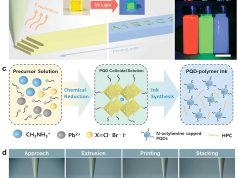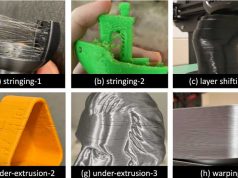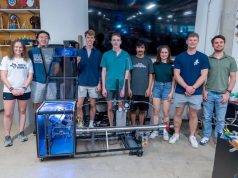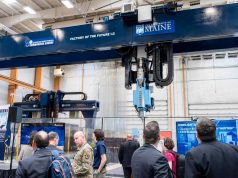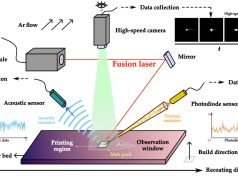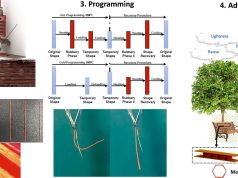At Northern Kentucky University, students and professors from various disciplines are working on a 3D-printed robotic arm that is controlled via WiFi and the user’s brain waves.
Mahdi Yazdanpour, assistant professor of mechatronics technology, describes the approach as a hybrid brain-computer interface and a mini-driven prosthetic. This innovative research could offer a more cost-effective alternative to commercially available prostheses, which often cost tens of thousands.
Yazdanpour and his team rely on a non-invasive technique that, unlike many other robotic arms, does not require sensory implants. Instead, they work with electroencephalographic (EEG) systems. Users simply have to concentrate on a movement so that the computer learns their brain waves and the arm reacts accordingly.
“Brain-computer interface means you can have connection between the human brain and any machines or devices, any electromechanical devices,” Yazdanpour said. “It’s a very cutting-edge research topic.”
At the heart of the technology is an EEG cap that is connected to a computer and records brain signals. Once the system has learned the signals, the user can trigger the mechanism in the arm simply by thinking about the hand movement. The aim is to integrate sensors into everyday headgear and enable arm control via WiFi.
“I watched Terminator as a middle school student, so I feel like this is fascinating,” Yangyang Tao laughed. “I feel like I’m actually doing something like the Terminator and we’re creating a robot and am doing some smart stuff.”
The NKU team plans to expand the design beyond simple hand movements. The next phase of research involves integrating pressure and temperature sensors on the fingertips that can transmit pressure, heat and cold sensations to a skin sensor.
Although the project is still in the development phase, those involved are optimistic and are seeking further research funding. This innovative approach could revolutionize prosthetics and usher in a new era of integration between technology and the human body.
Subscribe to our Newsletter
3DPresso is a weekly newsletter that links to the most exciting global stories from the 3D printing and additive manufacturing industry.






